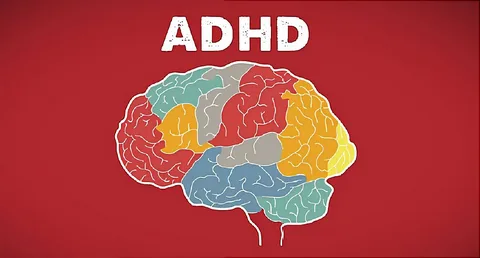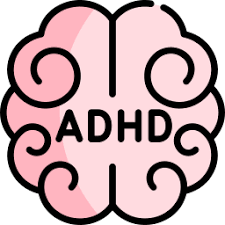Nurturing Independence: A Guide to Raising a Teenager with ADHD

Strong 8k brings an ultra-HD IPTV experience to your living room and your pocket.
Raising a teenager is no easy task, but when your teen has ADHD (Attention Deficit Hyperactivity Disorder), the challenges can feel even more daunting. ADHD can impact various aspects of a teenager's life, including their ability to focus, organize tasks, manage time, and control impulses. However, with the right strategies and support, you can help your teenager with ADHD thrive and become more independent. In this article, we'll explore practical tips and techniques for nurturing independence in teens with ADHD.
✍️ If you’re looking for a complete resource that explains ADHD symptoms, causes, and treatment strategies in simple language, our detailed ADHD guide breaks down everything from diagnosis to lifestyle adjustments for both children and adults.
Understanding ADHD:
Before diving into strategies for nurturing independence, it's crucial to have a basic understanding of ADHD. ADHD is a neurodevelopmental disorder characterized by persistent patterns of inattention, hyperactivity, and impulsivity that interfere with daily functioning and development. Teenagers with ADHD may struggle with staying organized, following through on tasks, managing their time effectively, and regulating their emotions.
Encouraging Self-Awareness:
One of the first steps in nurturing independence in teens with ADHD is helping them develop self-awareness. Encourage your teenager to learn about their ADHD, including its symptoms, strengths, and challenges. Help them recognize how ADHD affects their daily life and identify strategies that can help mitigate its impact. By understanding their ADHD, teens can take ownership of their strengths and weaknesses, empowering them to advocate for their needs and seek support when necessary.
Setting Realistic Expectations:
Setting realistic expectations is essential for fostering independence in teens with ADHD. Recognize that your teenager may need additional support and time to complete tasks or achieve goals compared to their peers without ADHD. Break tasks down into smaller, manageable steps, and provide clear instructions and expectations. Focus on progress rather than perfection, celebrating achievements no matter how small. By setting realistic expectations, you can help your teenager build confidence and develop a sense of accomplishment.
Teaching Time Management Skills:
Time management is often a significant challenge for teens with ADHD, but it's a crucial skill for independence. Help your teenager learn effective time management strategies, such as using planners or digital calendars to organize tasks and deadlines. Encourage them to prioritize tasks based on importance and urgency, and break larger projects into smaller, more manageable chunks. Practice setting timers or alarms to help them stay focused and on track. By teaching time management skills, you can empower your teenager to take control of their schedule and responsibilities.
Promoting Organization:
Organization is another key component of independence for teens with ADHD. Help your teenager create systems to keep their physical space and belongings organized, such as labeled bins or folders for schoolwork, a designated homework area, and a daily routine for chores and responsibilities. Encourage them to use tools like checklists or reminder apps to stay on top of tasks and appointments. By promoting organization, you can reduce feelings of overwhelm and increase your teenager's ability to manage their environment effectively.
Developing Problem-Solving Skills:
Teens with ADHD may struggle with impulsivity and difficulty thinking through consequences before acting. To foster independence, help your teenager develop problem-solving skills and impulse control. Teach them to pause and think before making decisions, considering the potential outcomes and alternatives. Encourage them to brainstorm solutions to challenges they encounter and evaluate the pros and cons of each option. By developing problem-solving skills, you can empower your teenager to make informed choices and navigate obstacles more effectively.
Encouraging Self-Advocacy:
Self-advocacy is essential for teenagers with ADHD to assert their needs and communicate effectively with others. Encourage your teenager to advocate for themselves at school, home, and in social settings. Help them practice articulating their strengths, challenges, and accommodations they may need to succeed. Teach them how to initiate conversations with teachers or other adults about their ADHD and discuss strategies for support. By fostering self-advocacy, you can empower your teenager to take control of their education and future.
Building Resilience:
Living with ADHD can be challenging, and setbacks are inevitable. Building resilience is essential for teens with ADHD to bounce back from adversity and persevere in the face of challenges. Encourage your teenager to develop coping skills, such as mindfulness, deep breathing exercises, or physical activity, to manage stress and regulate their emotions. Foster a growth mindset by emphasizing the power of effort and learning from mistakes. Provide encouragement and support during difficult times, reminding your teenager of their strengths and capabilities. By building resilience, you can help your teenager develop the confidence and perseverance needed to thrive despite the challenges of ADHD.
Conclusion:
Raising a teenager with ADHD presents unique challenges, but with patience, understanding, and support, you can nurture their independence and help them thrive. By fostering self-awareness, setting realistic expectations, teaching essential skills, and promoting resilience, you can empower your teenager to navigate the complexities of ADHD and achieve their full potential. Remember that every teenager is unique, so be flexible and adaptable in your approach, and celebrate the progress your teenager makes along the way. Together, you can overcome obstacles and embark on a journey of growth and independence.
Note: IndiBlogHub features both user-submitted and editorial content. We do not verify third-party contributions. Read our Disclaimer and Privacy Policyfor details.







